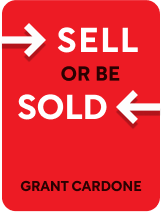

This article is an excerpt from the Shortform book guide to "Sell or Be Sold" by Grant Cardone. Shortform has the world's best summaries and analyses of books you should be reading.
Like this article? Sign up for a free trial here .
Why is time management in sales important? How do productive salespeople manage their time?
Time management in sales is important because it increases productivity and helps you better manage the many surprises that happen in the sales profession. Productive salespeople strive to spend more time with customers instead of their co-workers, and they follow a strict daily sales schedule.
Read on to discover how to master time management in sales.
Mastering Time Management in Sales
Discipline is required to master time management in sales. Discipline is critical to success in any field, but especially in sales because sales is so changeable—there are surprises every day, and a lot of the work is commission-based. (It’s easier to manage change in sales when other parts of your life, such as your morning training routine, are stable.)
Effective time management in sales demands you treat time like money and use it wisely.
- For example, when Cardone was going to Las Vegas for a speaking engagement, he could have stayed an extra day and been a tourist. Instead, he decided to come home as soon as possible so that he could use his time to make sales rather than staying in a hotel or visiting an attraction that would make someone else money.
In particular, use your hour-long lunch break wisely—it amounts to 312 hours a year if you work six days a week. Don’t bring your lunch from home or go out with your coworkers or boss—they’re never going to buy anything from you.
Instead, do one of the following:
- Take customers to lunch. Spending time with either existing or new customers can lead you to sales. For example, when Cardone took a customer and his family out for lunch as a thank-you for buying, the customer ran into a friend at the restaurant who wanted the same product.
- Scope out restaurants for potential customers. People who go out for lunch, especially to expensive restaurants, are potential buyers because they have money. Go to the same few restaurants regularly so you can get to know the owner, staff, and then ultimately the customers. Start conversations by commenting on something you have in common. For example, you might tell someone you like her shoes or ask her where she bought them.
If you feel like time management in sales is difficult, it’s probably because you’re wasting the time you have. Everyone has the same amount of time in a day, but some people watch three hours of television and other people use those 180 minutes to pursue sales.
Anytime you do something unproductive, such as calling your family, daydreaming, or taking coffee breaks, write it down. This will help you be aware of how you’re spending your time so you can start to pursue effective time management in sales. You’ll have time to relax and spend time with your loved ones after you’ve become successful.
Example Schedule
Here is a schedule you can use to make $250,000 a year:
Two hours before work starts:
- Get up.
- Jot down long-term goals.
- Exercise.
- Watch or listen to motivational training materials.
One hour before work:
- Get dressed.
- Listen to sales training audio while driving to work.
- Get breakfast at a restaurant that’s popular with potential customers.
15 minutes before work:
- Arrive at work.
Throughout the morning:
- Have a sales meeting and a save-a-deal meeting (a meeting in which everyone discusses sales that were previously lost and how they might be salvaged).
- Make a list of everyone you’re going to speak with that day and a battle plan for how you’ll handle them.
- Contact everyone and enact your battle plan.
- Follow up on any opportunities that cropped up the day before.
- Call five customers about service updates.
- Call and/or fax everyone you sent a mailer or email to the week before.
Lunch
- Eat with a customer or eat somewhere you might meet a potential customer.
Throughout the afternoon (1-5 p.m. for Cardone):
- Send mailers to five past customers, five friends, five5 business contacts, and any traffic that’s older than 10 days.
- Mail five birthday cards. Sending out birthday cards randomly is a way to encourage people to contact you—when you inevitably get the date wrong, they’ll call to tell you when their birthday actually is, starting a conversation.
- Go visit clients.
In the early evening (5-8 p.m. for Cardone):
- Keep calling customers.
- Hold appointments.
- Help any customers who walk in.
In the late evening (8-10 p.m. for Cardone):
- Create a plan for the next day.
- Make a list of contacts you could approach during the rest of the week.
- Rewrite long-term goals.
- Go home and spend time with your family and loved ones.
- Don’t watch TV.
- Sleep.
Check off each item as you do it. This will help you maintain discipline and make the schedule a habit.

———End of Preview———
Like what you just read? Read the rest of the world's best book summary and analysis of Grant Cardone's "Sell or Be Sold" at Shortform .
Here's what you'll find in our full Sell or Be Sold summary :
- How your happiness and even survival depend on your selling ability
- The five steps to becoming a master salesperson
- Step-by-plans to lead the customer to make a purchase






